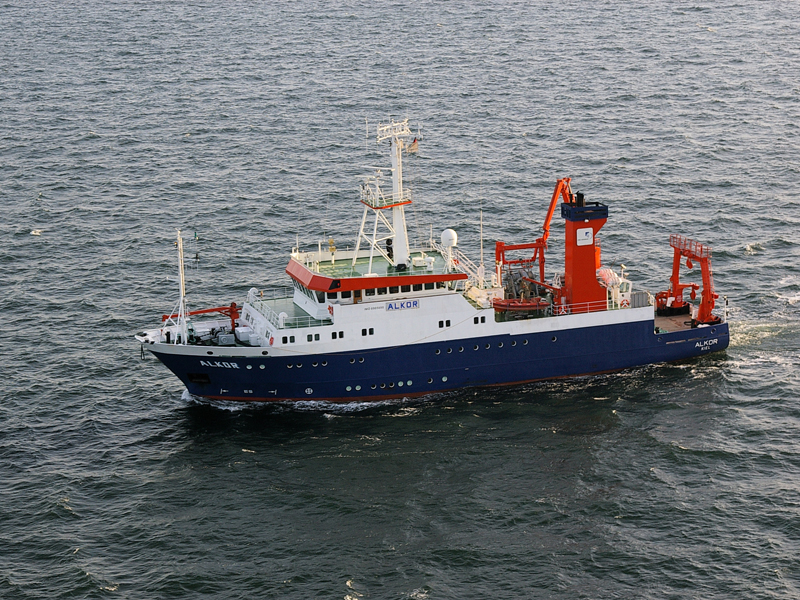ALKOR AL610
- Area:
- Baltic Sea
- Time:
-
04.04.2024 - 16.04.2024
- Institution:
- GEOMAR
- Chief scientist:
- Felix Mittermayer
The Baltic Sea is comparatively speaking species poor, yet it provides important ecosystem services to the Baltic nations. At the same time, it is one of the regional seas most affected by the combination of global and regional anthropogenic changes, including warming, eutrophication, the spread of anoxic zones and resulting biological shifts. The monitoring cruise program will extend a unique integrative long-term data and sample series of the pelagic systems of the central Baltic Sea that has been collected annually since the year 1986, on the same station grid, and with consistent methodology. This series has been an integral resource to assess and understand biological responses of the pelagic systems of the central Baltic Sea to environmental fluctuations, human exploitation, and rapid directional changes related to global change and anthropogenic drivers. The proposed cruises will continue the collection of primary data (hydrography, fish and jellyfish community composition including monitoring for non-indigenous species, single fish data) and of biological samples for downstream laboratory analyses (phyto- and zooplankton community composition, cod samples for fecundity, diet, food web tracer, parasite load and molecular analyses; other fish species and food web samples). The cruises will also be used to test, and if proven feasible and promising integrate, novel methods and approaches such as optical surveys. The close integration with running and planned projects will ensure that the resulting time series spanning the years 1986–2026 will be actively used to promote much needed understanding of biological changes in the “Baltic sea of change”.



